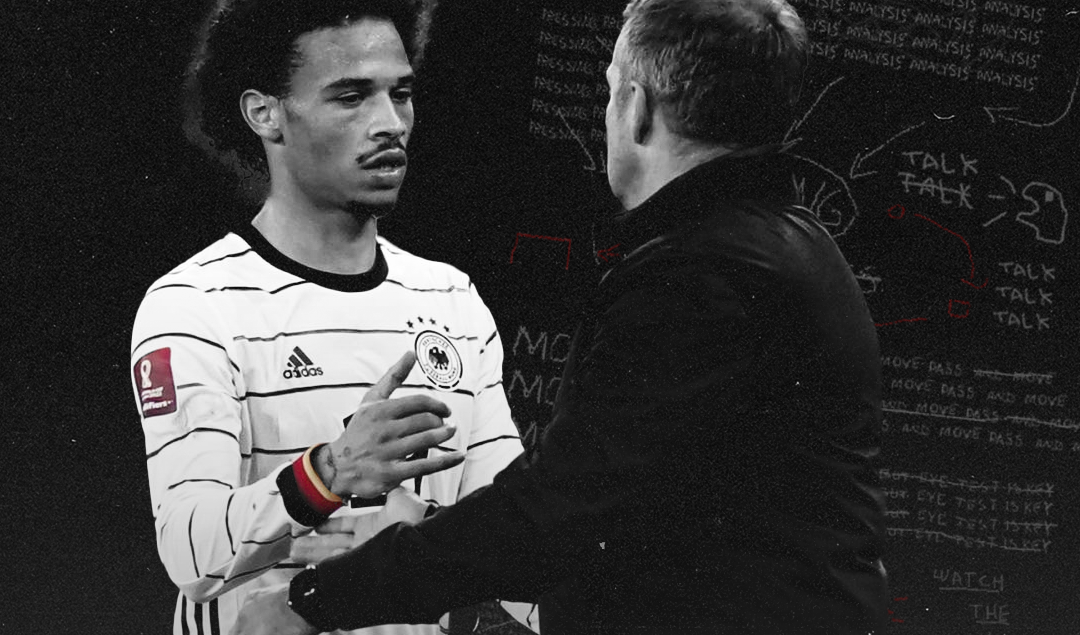Four Reasons for Germany’s Early World Cup Exit
Germany had not exited the World Cup group stage until 2018 — they’ve been knocked out of the group stage for a second straight tournament, one year after falling to England in the Round of 16 of the European Championships. It’s a debacle, a disaster, and nothing we haven’t seen before. Today, we’re taking a look at 4 reasons behind Germany’s premature exit.
Calamitous Individual Lapses
Soon we will focus on some of Germany’s issues going forward, but it is impossible to look past their defensive debacle as the key reason for this early flight home. Throughout all three matches, Germany looked error-prone and brimming with disaster at the back. Whereas a strong tournament outfit can build its base off of a secure defensive backbone, Germany seemed destined to fight against their own Achilles heel from the very first kickoff last Wednesday.
Whether it be Nico Schlotterbeck’s rash decision-making, Niklas Süle’s lack of awareness, Antonio Rüdiger’s persistence with an off-side trap, David Raum’s all-out-attack, or Thilo Kehrer’s simple lack of quality, Germany were never able to overcome the enemy staring themselves straight in the mirror.
A Focal Center-Forward Gone in the Wind
It was no secret that Germany had a center-forward crisis going into this tournament. Since Miroslav Klose’s retirement in 2014 Die Mannschaft have looked desperate for a player to fill this role, and more than ever before, this tournament showed just how gaping his absence continues to be felt.
Could Leroy Sané Provide the Answer to Germany’s Struggles in Attack?
At the time of writing – with every group stage match completed – Germany took the most shots of any side in the competition, and even averaged 5 more shots per match than the next best – reigning World Champions France. 4 goals against Costa Rica may finally be some semblance of a return on this investment, but the fact remains that after taking 37 shots against Japan and Spain, Germany managed to score just one goal from open play.
While the creative ability of Jamal Musiala, Leroy Sané, Serge Gnabry, and Thomas Müller is not under question, there is a reason their club manager, Julian Nagelsmann, has supplemented their talents with a more traditional number nine in Eric Maxim Choupo-Moting.
In just 66 minutes of cumulative action, Niclas Füllkrug managed to score 2 goals and offer a focal point for Germany to revolve around, so the big question mark that hangs around is just why Flick refused to start a true number nine in any of the 3 matches?
The Bundestrainer Under Fire
Hansi Flick is not without blame in Germany’s World Cup debacle. The Bundestrainer clearly didn’t get enough out of a talented squad, and his starting lineups drew a lot of questionable looks as the tournament drew on. The decision to never start Niclas Füllkrug despite his important role as a true center-forward was a head-scratcher, but it is far from the only one which he will have to swallow after the tournament.
Nico Schlotterbeck was given the full trust of the head coach despite playing a mediocre season in Dortmund and giving up 3 penalties in his last 5 Germany appearances, Thomas Müller started every single fixture regardless of the fact that he played far below his level and did not even register a single shot in the first two matches, while the shadow of Mats Hummels’ non-call up looms even larger following the tremendous deficiencies in the backline.
Which Bundesliga Players Are Set to Become Free Agents in 2023?
Yes, one could argue that Flick changed the game against Spain and Costa Rica with the talent he brought from the bench, but perhaps the bigger question is why did it take so long for him to get it right?
Where Have the Mentality Monsters Gone?
Germany wasn’t always a scintillating football nation with a surplus of talented creative midfielders, but something they could always rely on were the countless “mentality monsters” in the squad. Prior to 2018, Germany had never failed to make it out of the group stage of a World Cup, had never lost a penalty shoot-out, and were defined by an identity that somehow “got the job done”.
Since their first World Cup triumph, all the way back in 1954, Germany’s depth of individual talent has grown exponentially, yet these defining figures who can drag a side through an international tournament seem to continue to drop away year upon year.
Though limited from a talent perspective, characters like Benedikt Höwedes, Miroslav Klose, Per Mertesacker, and to a lesser extent, even Bastian Schweinsteiger were all far more than the footballing talent they brought onto the pitch. They were characters with the bravery to stand up and be counted when the times got tough, and never shied away when backed against the wall.
Looking back on the fateful final 15 minutes of the Japan fixture, it’s hard to even pick out more than a handful in this German camp who truly embody this vital mentality needed for a title-winning side.
By: Adam Khan / @XxAdamKhanxX
Featured Image: @GabFoligno / picture alliance
